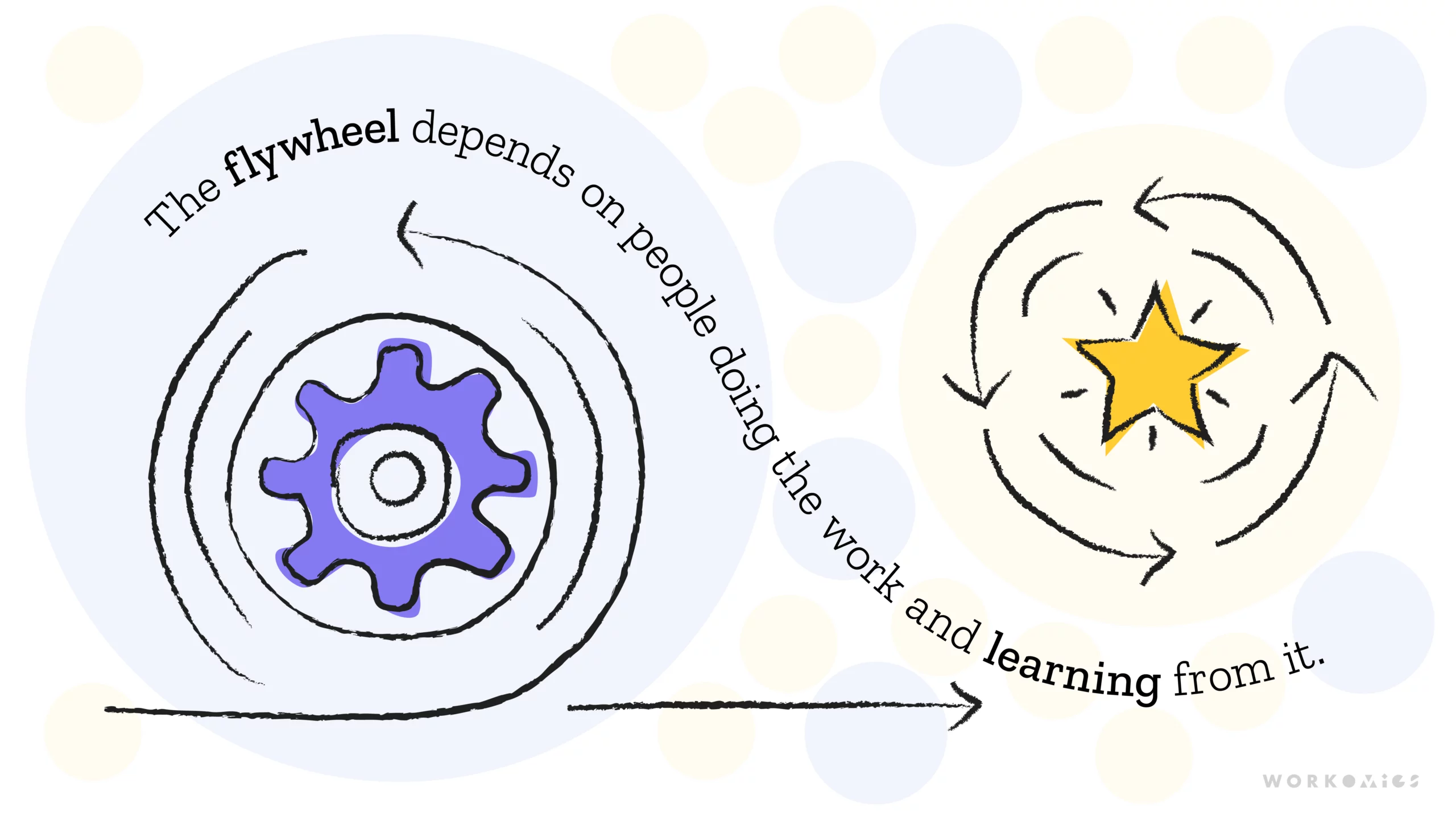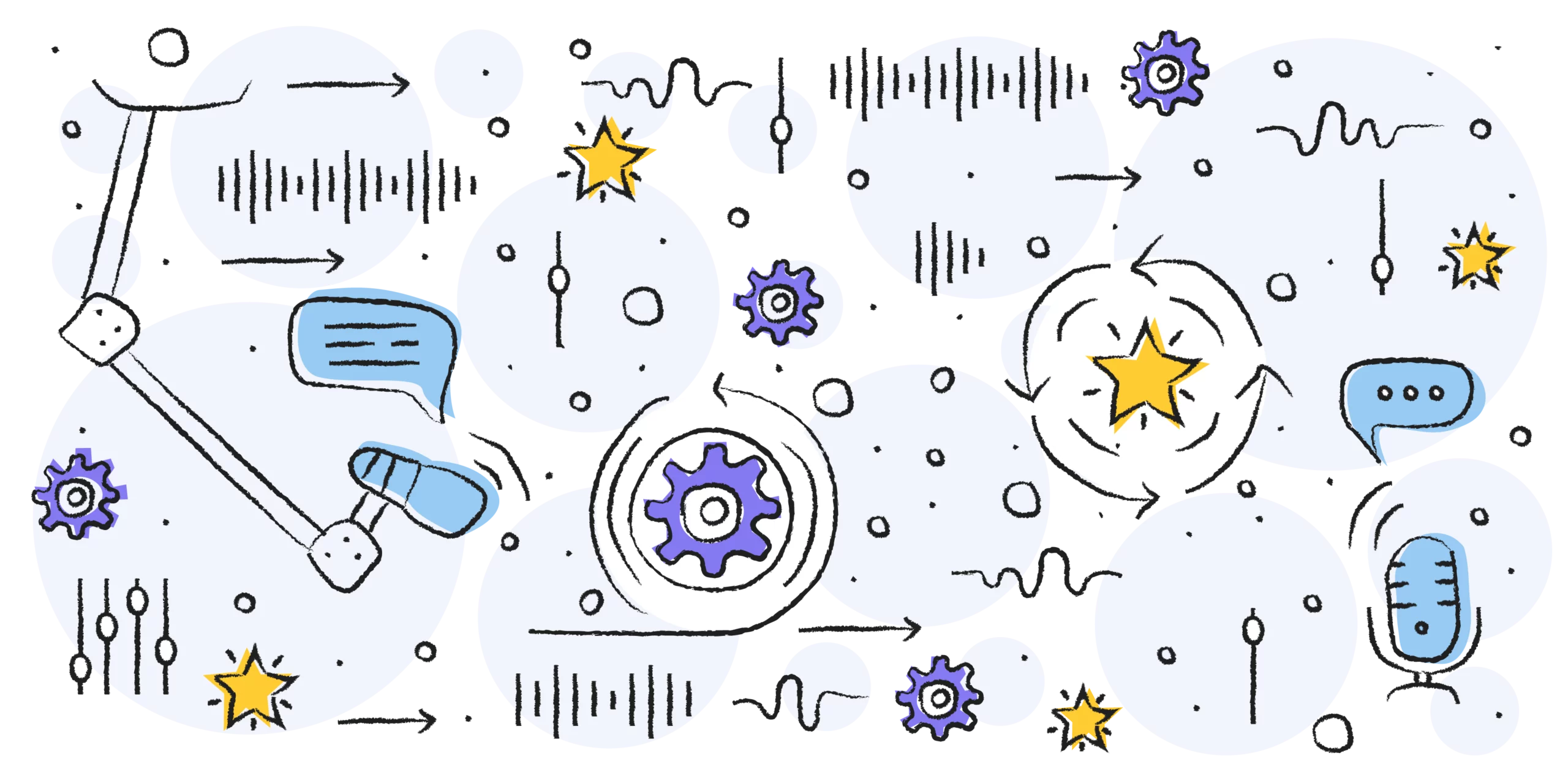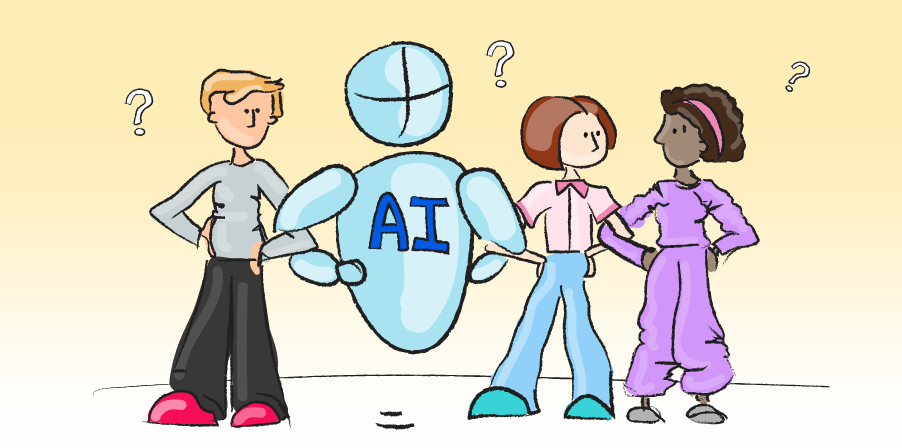The Inner Game of Change podcast is hosted by Ali Juma, an organizational change practitioner based in Melbourne. The podcast, which has been running for 3+ years explores change from every angle. His guests come from all over the world, discussing both theoretical models and frameworks and practical case studies. Change and AI? Change and neuroscience? Change and L&D? Change and empathy? It’s a wide-ranging array of perspectives that provides thoughtful insight on making change in organizations.
In June, Workomics was delighted to be guests on the podcast. Susan and Terri spent an hour with Ali, talking about how they have applied the philosophy of Jim Collins’s change flywheel over the course of their career. The central idea of the flywheel is that you build momentum for broad transformation with small, practical efforts. Here are a few quotes from the discussion:
Susan: We think there is some value — of course — in defining your north star and where you’re headed, but you really need to just start going there. Inevitably, there are going to be roadblocks that you hit along the way and you can’t anticipate all of them. Spending a lot of time trying to anticipate all of them is not a good use of limited resources.
Terri: From an on-the-ground, employee perspective, the notion that you have to put strategic work into practical application as soon as possible is super important. People have to see how the change is going to live in their day-to-day. They can’t just see it in a PowerPoint presentation; they need to actually feel the change. If we can’t make that connection clear enough, the flywheel can stop working. The flywheel depends on people doing the work and learning from it, iterating on it, trying it again, doing it better, sharing the learnings, getting more people involved.
Susan: Our understanding of the problem is not fixed, and the more often we can go back and forth and iterate, the quicker we’re going to get something that’s practical and useful. We’re back at the flywheel: creating momentum.

Along with the flywheel, the episode also touches on topics like:
- Why Workomics is small on purpose
- How change in Canadian workplaces might be different than elsewhere in the anglosphere.
- The importance of vulnerability and prototyping
- How AI might reshape the workplace
You can listen to the whole episode here, or wherever you get your podcasts. Huge thanks to Ali for inviting Susan and Terri to share some of the Workomics philosophy on organizational change.
Our other ideas worth exploring
Mailbag: Social Change and Career Choice
In general, the more a job is focused on contributing to society and community, the less it pays. It’s not an immutable law of physics, but wages in the charitable sector consistently lag the private sector, and typically there’s a trade-off between doing good (for the world) and doing well (for yourself, financially.)
Three principles to make AI work for people and teams
Meet Daisy: An AI Case Study. Daisy is a Regional Sales Enablement Specialist for a large multinational in a heavily regulated industry. She works with sales executives in her region to help them build skills and deliver better outcomes for customers and the business.
An AI Policy-in-Progress
We use AI judiciously, so that we are minimizing the downsides and maximizing the benefit. Our use of AI should be additive, transparent, eco-conscious, and voluntary.




